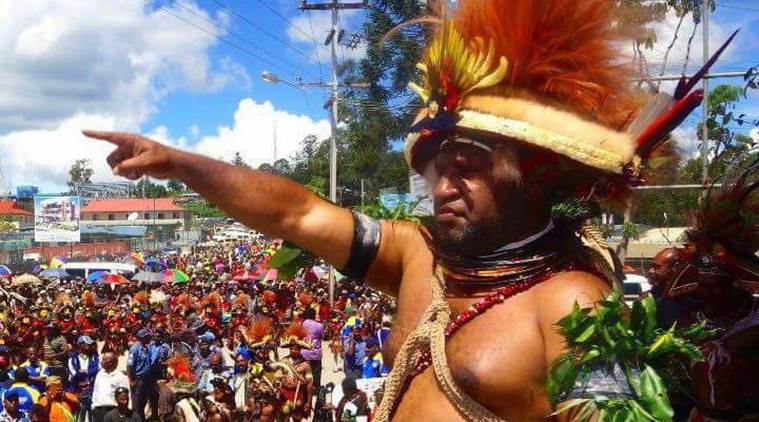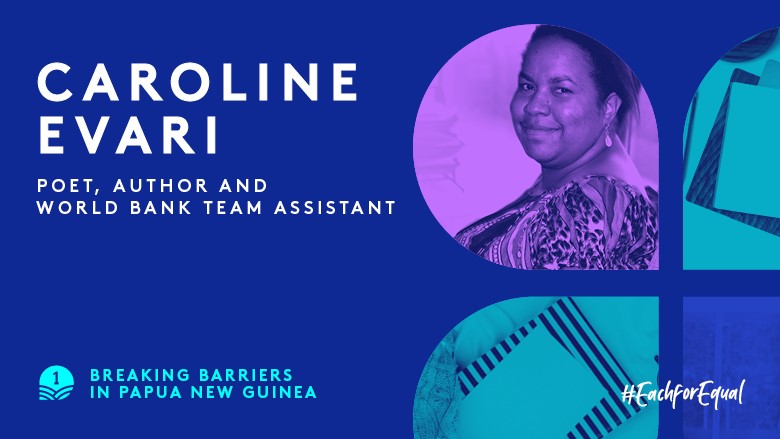To understand what is wrong with South Fly is to first look at the big picture before delving down into the minutiae of the problems faced by this district.
THE BIG PICTURE
South Fly District is carved out of mainland PNG by the Fly River which runs from the northwest PNG-Indonesia border towards the south east into the Coral Sea. It has a land mass of over 31,000 square kilometers, enough to fit in the highlands provinces of Simbu, Eastern Highlands, Western Highlands and Jiwaka and still have a lot of breathing space.
The district’s enormous size presents a logistical nightmare when trying to deliver basic government services to people scattered over such a large area. This is further compounded by the fact that, like every other district in PNG, it only receives around K10 million each year from the national government. Imagine trying to deliver goods and services to the provinces of Simbu, Eastern Highlands, Western Highlands and Jiwaka with only K10 million.
Its problems are also structural. Some of these issues are unique to the district and are the outcomes of broader historical processes that have produced present realities. When PNG gained independence in 1975, the preamble to its constitution declared the nation’s self-affirmation on the global stage. However, in its subsequent sections, the constitution also gave effect to the instruments and institutions of colonisation.
In effect the PNG constitution is a bit of an oxymoron in that it declares a PNG identity and then goes on to suppress that by empowering the tools of colonial power. The consequence of this constitutional contradiction is that colonisation in PNG now has a Melanesian face with the neo-colonial powers being in Waigani and the colonies at the periphery.
Thus, for the people of South Fly, those along the borders of Indonesia and Australia had their fate sealed by Port Moresby, Canberra and Jakarta. Take for example the ‘treaty villages’ along the Torres Strait which have been deprived of any commercial gains from fisheries thanks to the Torres Straits Treaty. Although one would assume the border villages would be far more developed given their proximity to larger and more advanced economies, they are amongst the most poorest and disadvantaged in the district.
Recent work done by Professor Mark Moran and his team from the University of Queensland show that the level of poverty in these areas is comparable to that of sub-Saharan Africa.
As Professor Moran and his team noted:
“The close pre-colonial relationships between people in the South Fly and Torres Strait Islands, which typically fostered mutual benefits for both parties, were transformed when PNG gained independence in 1975. Since then, the benefits coming to Torres Strait Islanders along with their Australian citizenship have steadily increased, lifting their living standards.
“Meanwhile, the situation in the South Fly has deteriorated: the people have received limited support from the PNG Government and environmental damage due to irresponsible mining practices has damaged the marine environment on which they depend.
“[The] asymmetries on the PNG side of the border have deepened further as the management of the Torres Strait Treaty has gradually hardened.”
Other structural problems are not unique to the people of South Fly. Waigani’s negative relationship with the periphery is well documented with the Bougainville civil war being the most infamous.
The growing calls for autonomy from the periphery reflect the level of mistrust felt by the margins of their neo-colonial masters in Waigani.
Take for instance the idiosyncrasies of the Waigani imposed administration. Provinces, districts, local level governments (LLGs) and wards exist merely as decorative shells giving a perception of administrative power and control by the regions.
Many ‘provincial’ sectors of administration are actually controlled from Port Moresby with neither the local political leaders nor administrators in charge. And so the ‘Provincial’ Police Commander is accountable to Konedobu, and the ‘District’ Finance Manager reports to the Finance Department in Waigani.
In Waigani’s language these are ‘national functions’ operating at the provincial or district level. The use of the terms ‘provincial’ or ‘district’ refer to geographic descriptions of the roles as opposed to any form of local political or administrative autonomy.
And so a major development challenge faced not just by South Fly but other regions of PNG is that the political and administrative heads of provinces, districts and LLGs are rather impotent when dealing with officers who are accountable to Waigani and not the local authorities.
How do these local generals command their soldiers when the soldiers receive marching orders from Waigani?
The battle against entropy in the provinces and districts is lost even before the war has begun because of the command structure. Thus entropy has won, is winning and will continue to win unless generals and soldiers are under one command structure.
What I am saying is nothing new. It was recognised at the dawn of PNG’s independence and has continued to be articulated by various parties in various forms.
Unfortunately, the viceroys of the new empire which was inherited from our colonial masters in 1975 remain stubborn in their grasp of power and privilege.
Thus when a Member for South Fly receives the K10 million district service improvement grant with all the strings Waigani has attached, it is dispensed according to Waigani’s guidelines to implementing officers who are ultimately accountable to Waigani.
The local member of parliament acts like a postmaster for Waigani. If one is to understand some of the unconventional behaviour of some MPs one must understand the power play and potential political suicide that faces them.
THE SMALL PICTURE
And with this we segue into the small picture for the people of South Fly.
Ask anyone on Daru Island what is wrong with service delivery and the two things they mention are lack of political leadership and a corrupt public service.
But, as I have noted earlier, whilst these two concerns are genuine, the problems are larger than that.
Both the political leadership and civil service face the unenviable task of delivering goods and services to a scattered population over a large geographical area with very limited resources.
The local MP, the police commander and education and health advisors simply do not have the capacity to deliver to the entire electorate. Yet they are expected to perform miracles. And when they fail they are accused of being corrupt.
Funds from Waigani also are notoriously late or never sent - and guess who gets blamed for the lack of service?
But on the occasion that funds do arrive, the administrative idiosyncrasies discussed earlier kick into place thus there is lack of accountability at the local level.
South Fly District is only as accountable as Waigani holds it to account. Even Daru has not much control over Daru as, in many cases, Daru reports to Waigani.
On Daru Island it’s always the next person who is the problem.
Everyone seems blindsided by their own self-righteousness. And so, as individuals fail to reflect on their own personal weakness and correct them, the process of growth and improvement fails to happen.
On my first trip down to Daru, I met a couple of District Development Authority board members who kept blaming the public servants for many of the issues in the district.
But as I looked through some of the decisions I wondered if the DDA board was not playing its role. Many of the board members I spoke to didn’t fully understand their roles and responsibilities.
I asked them, “Do you know that you are in charge of looking after the yam house that belongs to the people of South Fly?”
“Do you know that the rats cannot eat the yams unless you give approvals at the DDA board meetings?”
“How can you blame the rats for eating from the yams from the yam house when you gave approval to the rats to get hold of the yams at the first place?”
You can imagine how the board members performed at subsequent board meetings.
GOING FORWARD
There needs to be a lot of individual reflection and soul searching on Daru Island with more empathy for the next person on the island.
Everyone needs to examine their own strengths and weaknesses and to see the goodness in others that can be leveraged to move the district forward.
The people of South Fly need to recognise the systems and structures that have been imposed on them since 1975 and organise themselves better to be able to make the systems work for them.








